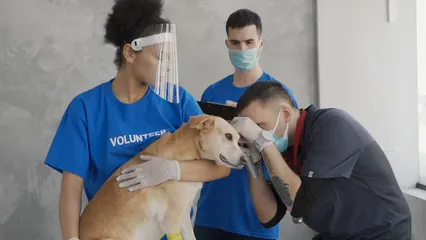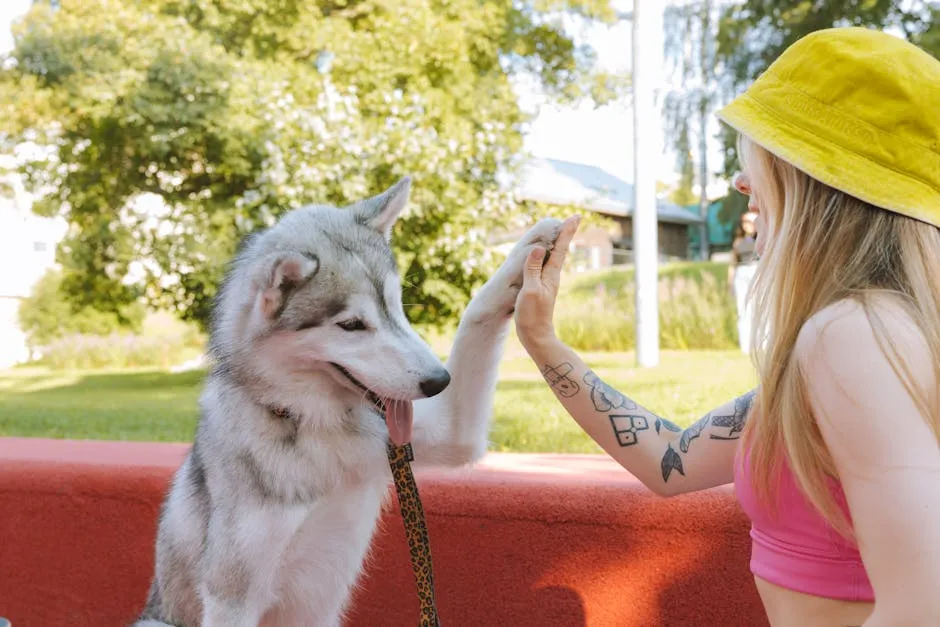Introduction
Caring for a German Shepherd goes beyond just providing basic needs; it involves understanding their unique requirements for health, training, and mental stimulation. This guide will provide you with essential information to ensure your German Shepherd leads a happy and fulfilling life.
Summary and Overview
German Shepherds are one of the most popular dog breeds due to their intelligence, loyalty, and versatility. They require a significant commitment from their owners in terms of exercise, training, grooming, and health care. This article will cover everything from nutrition to common health issues, giving you the tools you need to be a responsible and loving pet owner. Whether you’re a first-time owner or looking to enhance your current care routine, this guide will help you understand your German Shepherd’s needs.
Understanding German Shepherd Characteristics
German Shepherds are renowned for their intelligence and loyalty. These qualities make them excellent companions and working dogs. They are large, muscular dogs that typically weigh between 50 to 90 pounds. Their height ranges from 22 to 26 inches at the shoulder.
On average, German Shepherds live between 7 to 10 years. Their behavior is often characterized by a protective nature and a strong desire to please their owners. They thrive on regular mental and physical stimulation.
Before bringing a German Shepherd home, assess if your lifestyle matches their active needs. Do you have time for exercise and training? Are you ready for a loyal, energetic companion? Understanding these traits helps ensure a successful match.

Nutrition for German Shepherds
Feeding your German Shepherd a balanced diet is vital for their health. A proper diet must consider their age and activity level. Puppies require more protein for growth, while adults need a steady mix of proteins and fats.
High-quality protein should be the main ingredient in their food. Look for options like chicken, beef, or fish. Fats are also crucial; they provide energy and help maintain a healthy coat. Essential fatty acids, like Omega-3 and Omega-6, support skin health and reduce shedding. To give your pup the best, consider adding Omega-3 Fish Oil for Dogs to their diet!
Vitamins and minerals play a significant role too. They keep the immune system strong and support overall health. Ingredients like fruits and vegetables offer essential nutrients.
You should establish a consistent feeding schedule. For puppies, three to four meals a day is recommended. As they grow, reduce it to two meals daily. Portion control is key; follow the guidelines on the dog food package or consult your vet for specific recommendations.
Avoid giving your German Shepherd human food, as many items can be harmful. Steer clear of fillers like corn and soy, which provide little nutritional value. Low-quality ingredients can lead to health issues.
For the best food for German Shepherds, always consult your veterinarian. They can provide personalized dietary advice tailored to your dog’s needs. To learn more about a comprehensive dog diet, check out this ancestral dog diet.

Understanding your dog’s dietary needs is crucial for their health and happiness. Learn more about the ancestral dog diet here.
Exercise Requirements
German Shepherds are energetic and need daily exercise. Aim for a minimum of 1 to 2 hours per day. Regular physical activity keeps them healthy and happy.
Variety is essential. Include walks, playtime, and training sessions. Activities like agility training stimulate their minds and bodies. These dogs thrive on challenges, so mix things up to keep it exciting. To enhance your dog’s agility training, consider adding some Agility Training Equipment to your routine!
Incorporating agility training into your routine can significantly benefit your German Shepherd’s physical and mental well-being. Discover more about agility training here.
Mental stimulation is just as important. Use puzzle toys, and engage in scent games to challenge their brains. This prevents boredom and promotes a well-rounded dog. Check out some fantastic Dog Puzzle Toys to keep your pup engaged!
Watch for signs of insufficient exercise. If your German Shepherd becomes destructive or barks excessively, they may need more physical activity. A well-exercised dog is a happy dog.
Creating a daily exercise routine is crucial for their well-being. Consistency helps your German Shepherd thrive and strengthens your bond. Remember, a tired dog is a content dog!

Health Care and Common Issues
German Shepherds can face specific health challenges. Common issues include hip dysplasia, bloat, and allergies. Awareness of these conditions is vital for preventive care. To understand and manage hip dysplasia, refer to this guide on understanding and managing canine hip dysplasia.
Being informed about your dog’s potential health issues can aid in early detection and management. Learn more about hip dysplasia here.
Regular veterinary check-ups are essential. These visits help catch potential health problems early. Ensure your dog stays up-to-date on vaccinations and preventive treatments.
Bloat can be life-threatening. Watch for symptoms like a swollen belly or difficulty breathing. If you notice these signs, seek immediate veterinary care.
Hip dysplasia is another concern. It can cause pain and mobility issues. Maintaining a healthy weight through diet and exercise can help manage this risk. Look for signs of discomfort, like limping or hesitating to jump.
Establish a veterinary care routine to ensure your German Shepherd stays healthy. Regular check-ups and prompt attention to any health concerns can lead to a longer, happier life.

Grooming and Coat Care
Grooming your German Shepherd is essential for their health and comfort. Regular brushing helps manage their thick double coat, which sheds significantly. Brush them at least once a week, and increase frequency during shedding seasons. This helps control hair around your home and keeps their coat shiny. For tips on reducing shedding, you can read about how to groom double-coated dogs to reduce shedding.
Effective grooming is crucial for maintaining your dog’s coat health and minimizing shedding. Explore grooming techniques here.
Bathing should be done sparingly, generally every few months. Overbathing can strip their coat of natural oils. Keep an eye on their ears; clean them weekly to prevent infections. Dental care is also vital; brush their teeth two to three times a week to reduce tartar buildup and bad breath.
Managing seasonal shedding is crucial. During spring and fall, expect heavier shedding. A de-shedding tool can be handy during these times. Consider using a De-shedding Tool for Dogs to keep your home fur-free!
For effective grooming, consider using quality tools like slicker brushes and dog-specific shampoos. Products such as a good conditioner can aid in maintaining their coat’s health. Investing in the right grooming tools makes the process easier and keeps your German Shepherd looking their best.

Training and Socialization
Training and socialization are key elements in caring for a German Shepherd. Early training helps establish good behavior and a strong bond between you and your dog. Start socializing your puppy as soon as possible, exposing them to various people, environments, and other pets. This builds their confidence and reduces the likelihood of anxiety or aggression later.
Positive reinforcement is the most effective training technique for German Shepherds. Use treats, praise, and playtime as rewards for desired behaviors. Consistency is critical; ensure everyone in your household uses the same commands and techniques to avoid confusion. For effective positive reinforcement techniques, refer to this article on effective positive reinforcement techniques for stubborn dogs.
Using positive reinforcement can significantly enhance your training sessions. Learn more about effective training techniques here.
Common behavioral issues include excessive barking, chewing, and jumping. Address them promptly by redirecting their energy towards constructive activities. Engaging your dog in mental exercises like puzzle toys or scent games can also channel their intelligence and curiosity. Check out Dog Treats for Training to reward your dog for their good behavior!
German Shepherds thrive on routine and structure. Incorporating training sessions into your daily routine will help keep their minds sharp. Consider enrolling your dog in obedience classes for additional socialization and training opportunities. These classes are excellent for building your dog’s skills and enhancing your bond.
By prioritizing training and socialization, you’ll help your German Shepherd become a well-rounded, happy companion.

Behavioral Traits and Management
German Shepherds are known for their protectiveness and intelligence. These traits make them loyal companions but can also lead to challenges. Managing barking and anxiety is essential for a harmonious home.
To address barking, identify triggers. Is your dog barking at strangers or noises? Training can help reduce excessive vocalization. Consistency is key. Use commands like “quiet” and reward calm behavior.
Anxiety in German Shepherds can manifest as destructive behavior or restlessness. Create a stable environment to ease their stress. Establish routines for feeding, walks, and playtime. This predictability helps your dog feel secure.
Providing mental stimulation is also crucial. Engage your dog with puzzle toys or training exercises. Activities like agility courses can channel their energy positively. A Dog Whistle for Training can also be a great tool for training your furry friend!
Remember, observing your dog’s behavior is vital for early intervention. If you notice signs of anxiety or excessive barking, consult a professional trainer or veterinarian for guidance.

Living with a German Shepherd: Lifestyle Considerations
German Shepherds thrive in environments that provide ample space and mental stimulation. They need a home where they can move freely. A yard is ideal, but regular walks and outdoor activities are essential too.
When it comes to family life, German Shepherds can be great companions for children. However, supervision is necessary. Teach kids how to interact with dogs respectfully to foster a positive relationship.
If you have other pets, early socialization is crucial. Introduce your German Shepherd to different animals to prevent dominance issues later.
Owning a German Shepherd is a long-term commitment. These dogs require daily exercise, training, and grooming. Be prepared for their shedding, especially during seasonal changes. Investing in a Dog Crate for Training can help create a safe space for your dog at home!
Consider your lifestyle before bringing one home. Can you dedicate time for their exercise and training needs? Assess your readiness for the responsibilities of pet ownership. Making an informed decision ensures a fulfilling relationship with your German Shepherd.

FAQs
How much exercise does a German Shepherd need daily?
Recommended to include at least 1-2 hours of physical activity daily.
What is the average lifespan of a German Shepherd?
Typically ranges from 7 to 10 years.
Are German Shepherds prone to any health issues?
Yes, common issues include hip dysplasia, bloat, and allergies.
How often should I groom my German Shepherd?
Regular brushing is recommended at least once a week, with more frequent grooming during shedding seasons.
What is the best diet for a German Shepherd?
A balanced diet with high-quality protein and essential nutrients tailored to their age and activity level.
Are German Shepherds good family pets?
Yes, with proper training and socialization, they can be excellent companions for families.
How should I socialize my German Shepherd?
Early exposure to different environments, people, and other pets is crucial for healthy social development.
Please let us know what you think about our content by leaving a comment down below!
Thank you for reading till here 🙂
All images from Pexels





